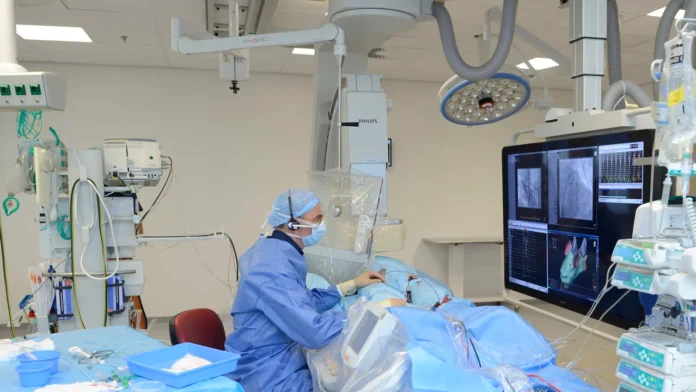Nurses, doctors and patients at the Catharina Hospital hear around four million alarms each year, which causes alarm fatigue. Therefore, the hospital wants to reduce the number of alarms.
Research claims that too much stimuli is dangerous because it could lead to a delayed response from the staff when something really happens. “The consequence of the many alarms is that nurses can become desensitised to these signals. This concept, alarm fatigue, can have harmful consequences if a critical situation remains unnoticed for a little longer. Alarms will never be completely ignored, but a small delay in reaction can also be dangerous,” says Tineke de Vries, researcher and biomedical technologist at the hospital’s department of clinical physics.
In addition, the alarms create a less pleasant environment, both for staff and patients. “Many alarm signals cause stress for healthcare providers. A quarter to a third of staff also take that stress home with them,” says intensivist Ashley De Bie. “They also disturb the peace of vulnerable ICU patients. Some patients are even startled by everyday sounds, such as a railway crossing, long after they leave the ICU because they are reminded of the ICU experience.”
‘Rarely important’
The many alarms leave their mark on both patients and staff. It is all the more remarkable that 85 percent of the alarms have no function for care at all.
“Sometimes three different alarms go off for one situation. They cause a lot of unnecessary stimuli. Alarms often go off because a patient moves, which is rarely meaningful. And sometimes a sensor becomes loose. Good to know, but that does not always have to be communicated with a loud signal tone,” says De Vries.
Institutions
The Catharina Hospital set up a working group last year to reduce the number of signals in the intensive care unit and operating rooms. By adjusting the settings of some machines or changing the working method, the number of alarms can already be reduced.
Finally, the hospital also wants to work with equipment manufacturers to reduce the number of alarms, although in some cases, this will also require new legislation.
Manufacturers
“Manufacturers naturally want to deal with their responsibilities well and often choose to signal as much as possible, also due to requirements from legislation and guidelines,” says De Bie. “But legislation is changing, so manufacturers sometimes have to make other considerations. And with the knowledge we gain, we can impose better requirements on our suppliers,” says De Vries.
The Catharina Hospital hopes to reduce the number of irrelevant alarms by half. The hospital assumes that it will take another five to ten years before this is achieved.
For Eindhoven News: Beena Arunraj
















